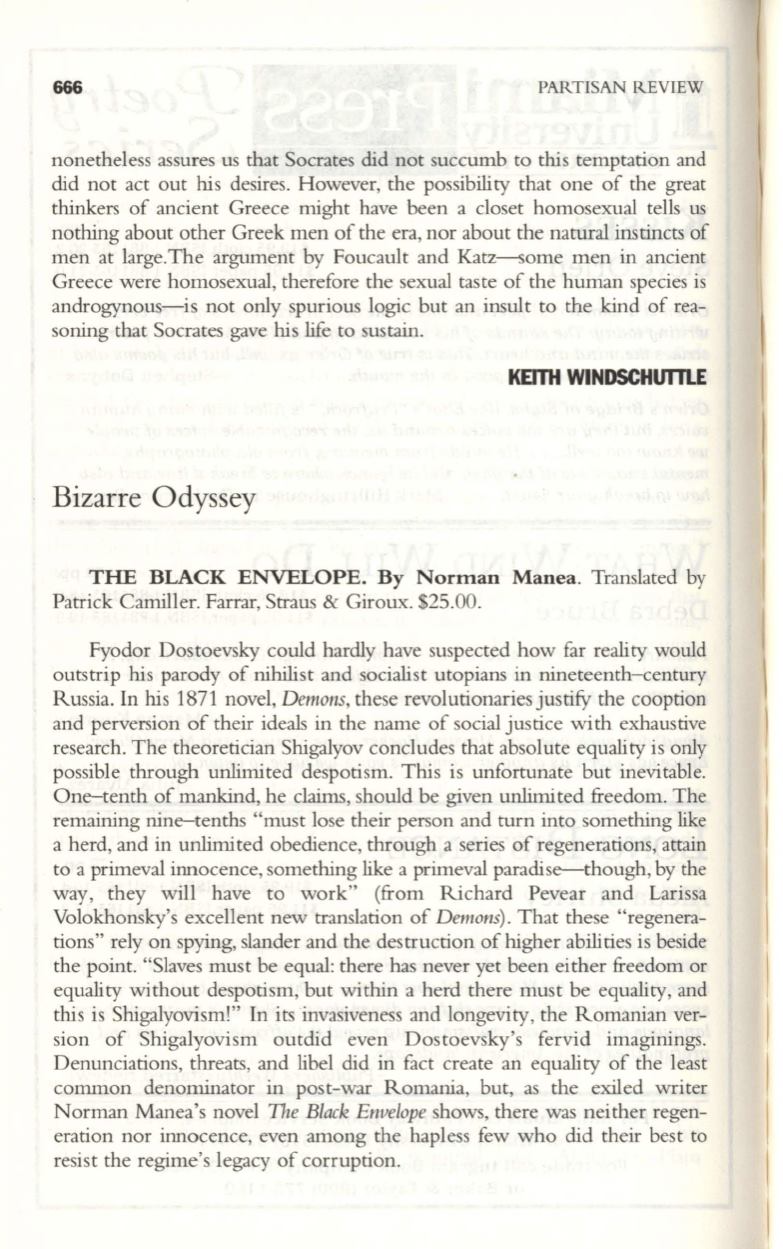
666
PARTISAN REVIEW
nonetheless assures us that Socrates did not succumb to this temptation and
did not act out his desires. However, the possibility that one of the great
thinkers of ancient Greece might have been a closet homosexual tells us
nothing about other Greek men of the era, nor about the natural instincts of
men at large.The argument by Foucault and Katz---some men in ancient
Greece were homosexual, therefore the sexual taste of the human species is
androgynous-is not only spurious logic but an insult to the kind of rea–
soning that Socrates gave his life to sustain.
KEITH WINDSCHUTn.E
Bizarre
Odyssey
THE BLACK ENVELOPE . By
Norman Manea.
Translated by
Patrick Camiller. Farrar, Straus
&
Giroux. $25.00.
Fyodor Dostoevsky could hardly have suspected how far reality would
outstrip his parody of nihilist and socialist utopians in nineteenth-century
Russia.
In
his 1871 novel,
Demons,
these revolutionaries justify the cooption
and perversion of their ideals in the name of social justice with exhaustive
research. The theoretician Shigalyov concludes that absolute equality is only
possible through unlimited despotism. This is unfortunate but inevitable.
One-tenth of mankind, he claims, should be given unlimited freedom. The
remaining nine-tenths "must lose their person and turn into something like
a herd, and in unlimited obedience, through a series of regenerations, attain
to a primeval innocence, something like a primeval paradise--though, by the
way, they will have to work" (from Richard Pevear and Larissa
Volokhonsky's excellent new translation of
Demons).
That these "regenera–
tions" rely on spying, slander and the destruction of higher abilities is beside
the point. "Slaves must be equal: there has never yet been either freedom or
equality without despotism, but within a herd there must be equality, and
this is Shigalyovism!"
In
its invasiveness and longevity, the Romanian ver–
sion of Shigalyovism outdid even Dostoevsky's fervid imaginings.
Denunciations, threats, and libel did in fact create an equality of the least
common denominator in post-war Romania, but, as the exiled writer
Norman Manea's novel
The Black Envelope
shows, there was neither regen–
eration nor innocence, even among the hapless few who did their best to
resist the regime's legacy of corruption.


